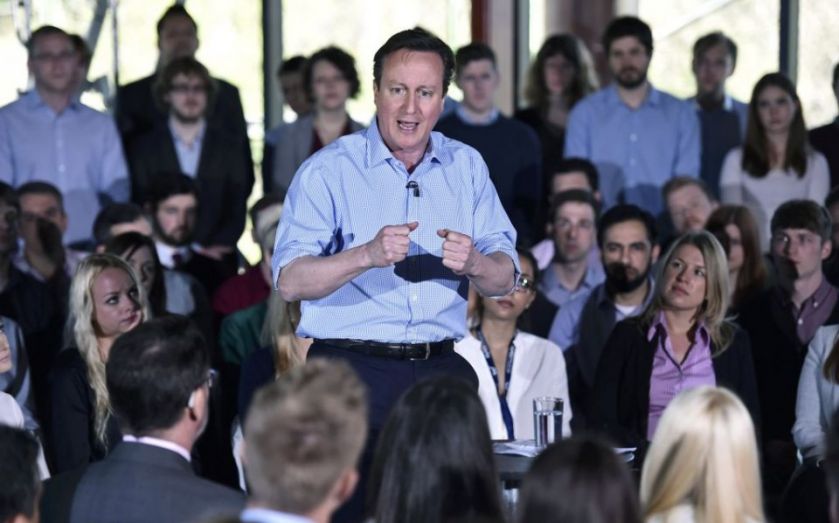Politicians must start seeing voters like customers – or they’ll shop elsewhere

The UK’s political heavyweights are throwing their final few punches in what we are assured will be the closest political fight for years. Who will land the knock-out blow is anyone’s guess – but there is one certainty and it revolves around the question of trust. Every voter wants to know which party will deliver on their promises. In short, will you get what you’re voting for?
Voters’ expectations are driven by their experiences on the high street and online. Evidence from the latest UK Customer Service Index shows, for example, that customer satisfaction has declined over the past two years. Why? One reason is that people are more demanding, less deferential and less tolerant of under-performance. Another is that the past seven years have been a chastening experience for businesses and consumers alike.
Politicians would do well to remember this. Their connection with the electorate is mirrored in the relationship between any organisation and its customers. When someone buys something, they have every right to expect professional service, timely delivery and quality goods. The same goes for politics; is it really good customer service if politicians promise one thing in their manifesto yet fail to deliver it?
It’s easy to come up with examples of chief executives forced from their roles because their organisations have failed to deliver on their business plans. Shareholders expect dividends, stakeholders expect results and, if they are not forthcoming, leadership changes often follow. The voting public is no different. To them, a manifesto is the same as a business plan, or at least it should be. If pledges aren’t met, voters will seek new leadership.
Of course, circumstances beyond an organisation’s control can change, which means some plans are no longer viable or relevant. Five years ago, few expected that the next government would be a coalition. But voters changed that. Any promises made were on the basis of “if I get into Number 10”, not “if we share power”. Of necessity, plans were adjusted because, without compromise, the country may have had instability it really didn’t need. Is it fair, then, to say promises haven’t been kept and customers (voters) haven’t been served?
I met a politician recently who had a simple, yet effective, sign on his office wall. It said “My constituents are my customers. How I serve them matters.” And he was right. As citizens, the public have a right to certain services. In all cases, the quality of service they receive relies significantly on a customer-centric commitment by the organisation or individual delivering it.
Our own research examining customer service in the public sector suggests that there are a few key ingredients to delivering excellent service. These revolve around clear purpose and vision, leadership, collaboration, better use of data and transparency. Some may question whether it is realistic to aspire to a vision of better customer service in politics. I say that a commitment to improved customer service is not just about functional delivery of services. As in business, success in this area depends on a long-term focus. This shouldn’t be difficult to translate into the public sector, since a sense of mission is often the very reason many people enter politics in the first place.
Put this together and it means voters are looking for credibility and trust. If they can’t find it in the business world, they vote with their feet and shop elsewhere. On 7 May, we’ll find out if, in the political world, they’ll vote at all.
[custom id=”1″]